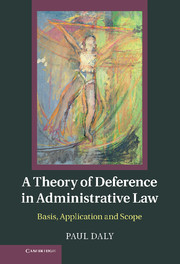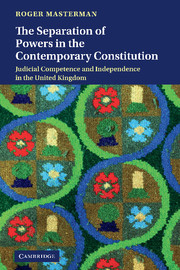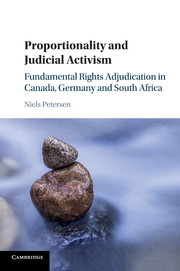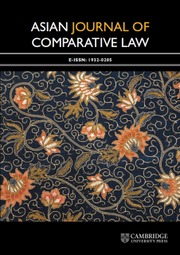A Theory of Deference in Administrative Law
In the modern administrative state, hundreds if not thousands of officials wield powers that can be used to the benefit or detriment of individuals and corporations. When the exercise of these powers is challenged, a great deal can be at stake. Courts are confronted with difficult questions about how to apply the general principles of administrative law in different contexts. Based on a comparative theoretical analysis of the allocation of authority between the organs of government, A Theory of Deference in Administrative Law provides courts with a methodology to apply no matter how complex the subject matter. The firm theoretical foundation of deference is fully exposed and a comprehensive doctrine of curial deference is developed for application by courts in judicial review of administrative action. A wide scope is urged, spanning the whole spectrum of government regulation, thereby ensuring wide access to public law remedies.
- Places deference in administrative law on a firm theoretical footing, thereby challenging those who prefer a non-deferential approach
- Provides judges and practitioners with a concrete methodology which they can use to apply the abstract principles of judicial review
- Offers a comprehensive and integrated analysis of judicial review of administrative action, drawing important parallels and noting relevant contrasts between administrative review and constitutional review
Reviews & endorsements
"Daly’s book is an excellent and fascinating contribution to administrative law theory that deserves a wide readership. It forces one to examine long-standing taxonomies in English administrative law."
Alison L. Young, Public Law
Product details
July 2012Hardback
9781107025516
324 pages
229 × 152 × 19 mm
0.6kg
1 b/w illus.
Available
Table of Contents
- 1. Defining deference
- 2. The delegation argument
- 3. The practical justifications for curial deference
- 4. Variable standards of review
- 5. Deference, proportionality and fundamental rights
- 6. Jurisdiction, questions of law, and discretion
- 7. Deference and political questions.





.jpg)
